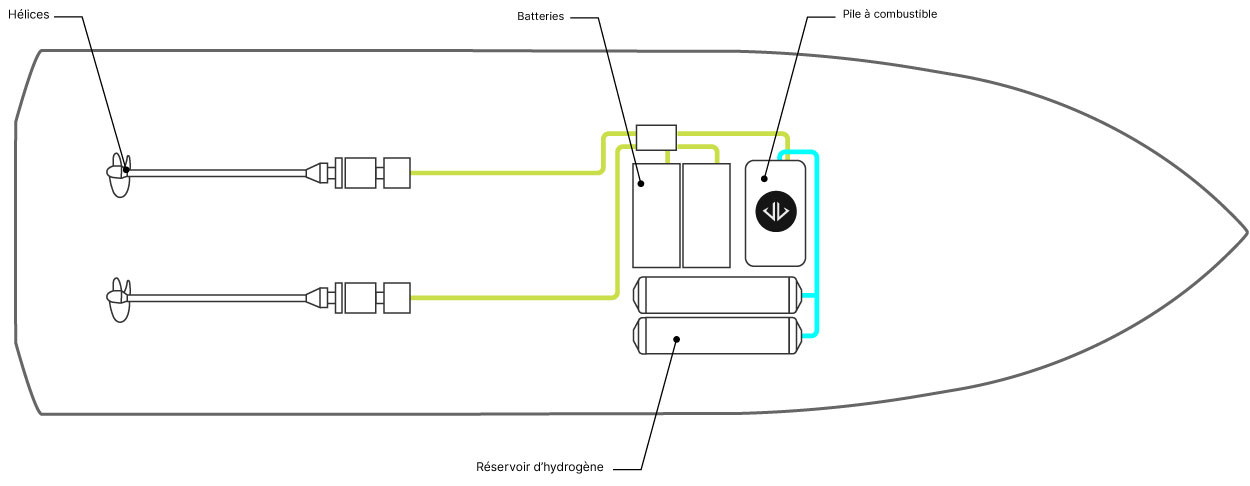The Cristal, the hydrogen-powered version of the BB42
The principle
The hydrogen engine for boats harnesses the energy of hydrogen to generate electricity. The process, known as water electrolysis, involves separating hydrogen and oxygen from water using an electric current.
The hydrogen is then stored in special tanks for use in a fuel cell, producing electricity to power the boat’s electric motor.
The hydrogen engine is an environmentally-friendly alternative to traditional diesel engines, since it produces only water as an emission, in contrast to the greenhouse gas emissions and pollutants generated by combustion engines. It is also more efficient than combustion engines, as it avoids the need to convert mechanical energy into electrical energy.

Benefits
Environmentally friendly:
Hydrogen-powered engines are a clean, environmentally-friendly alternative to combustion engines. They produce no greenhouse gases or atmospheric pollutants such as nitrogen oxides, fine particles or unburned hydrocarbons. So they help reduce your yacht’s environmental impact every time you go out.
Quiet:
Hydrogen engines are remarkably quiet. Unlike internal combustion engines, they generate no combustion noise or vibrations, considerably improving your sailing experience by reducing noise pollution on board.
Economical:
Hydrogen engines can also be more economical in the long term. Although their initial cost is higher than that of combustion engines, they offer significant savings on fuel and maintenance over the long term. What’s more, the price of hydrogen should fall as technology develops and demand increases.
Reliability:
Hydrogen engines are more reliable than combustion engines. With fewer moving parts, they are less prone to wear and corrosion, requiring less maintenance and offering a longer service life.
